After the electoral disaster of the Barry Goldwater candidacy in 1964, William F. Buckley Jr. acquiesced to backing Richard Nixon for president over a more ideologically aligned alternative Republican. Buckley justified his stance by articulating what would become known as the Buckley rule, saying he had to “be for the most right, viable candidate who could win it.”
For much of his time on the political scene, Donald Trump (who has more in common with Nixon than with any other modern-era president) has modified the Buckley rule for Republican primaries in two ways: replacing “most right” with “most pro-Trump,” and chopping off the final four words. In the president’s inflated self-assessment, the question of electability of a candidate he supported was tautological. Trump is a winner, and he chooses winners.
The actual record has been mixed; for every Ted Budd and J.D. Vance whom Trump has backed in competitive GOP primaries who have gone on to win a general election, there is a Mehmet Oz or Herschel Walker. But the pile-up of Trump-endorsed losers, particularly from the underwhelming 2022 midterm cycle, has frustrated the president’s second-term agenda on Capitol Hill. Yes, most of his Cabinet and other high-level appointees have gotten through the slim Republican majority in the Senate, but the GOP’s margin could be a lot bigger.
Are Trump and his team waking up to the idea that a little strategy can go a long way, embracing the most pro-Trump, viable candidate who could win it? I had a conversation with a Republican strategist this week who admitted that while GOP primary voters haven’t been swayed by the electability argument, “I can tell you, Trumpworld is concerned.”
That could explain a few moves and, well, non-moves in what could be one of the most costly and divisive Republican primary fights of next year’s midterm elections, in the great state of Texas. There’s no obvious reason that Sen. John Cornyn, the 73-year-old Texas Republican seeking a fifth term, shouldn’t have the broad support of his state’s primary voters. He’s won all four of his previous Senate primaries by double digits, and in his closest general election, 2020, he bested his Democratic challenger by nearly 10 points.
But Ken Paxton, the scandal-plagued state attorney general, is challenging Cornyn on the basis that Paxton is more of a true believer in Trump and the MAGA movement. “John Cornyn has been in Washington for over two decades, and he has turned his back on President Trump and the America First agenda time after time,” Paxton proclaimed when he launched his candidacy in April.
A Cornyn spokesman responded that Paxton is a “fraud” and previewed some of the baggage Cornyn’s campaign hopes to litigate ahead of next year’s primary, from Paxton’s impeachment by the Texas House of Representatives for a slew of corruption and obstruction charges (he was acquitted by the state Senate) to allegations he had extramarital affairs. Those and many more claims about his wrongdoing will be hitting airwaves and screens across Texas.
Polls this early in the cycle are not a precise snapshot, but the few of this primary race show Paxton with a significant lead over Cornyn, including a poll commissioned by a school-choice interest group and released this week that showed Paxton up by 22 points among registered Republican voters. The only independent poll to use a more discriminating “likely voter” screen, from Texas Southern University last month, shows Paxton with 43 percent support to Cornyn’s 34 percent. Seasoned political hands in Texas tell me that’s much closer to the truth than the surveys showing a Paxton blowout. (The TSU poll of a three-way contest with Rep. Wesley Hunt, who is considering a bid, had Paxton with 34 percent, Cornyn at 27 percent, and Hunt at 15 percent.)
Still, it demonstrates that Cornyn has a lot of work to do to convince Texas Republicans he’s still the man they should want to send back to Washington. He started by pushing out a memo to national media that the veteran senator has voted with Trump “99 percent of the time” across both the president’s first term and through the start of his second.
But much of the work of turning Republican voters off of Paxton will fall to a pro-Cornyn super PAC, Texans for a Conservative Majority. And who, exactly, is running that PAC? Chris LaCivita, a top political aide to Trump who helped lead the president’s successful 2024 campaign. Trump’s chief pollster, Tony Fabrizio, is working for Cornyn’s campaign.
LaCivita and Fabrizio have independent businesses, but their involvement with Cornyn, not Paxton, certainly has heightened the sense that despite Paxton’s high status in the president’s eyes—last year, Trump even floated tapping him for U.S. attorney general—Trump isn’t yet convinced of the most important factor: whether Paxton can actually win.
Over the last couple of decades, Texas has become a consistently Republican state at the national level, but it’s not as deep red as pro-Trump redoubts like Alabama or Oklahoma. Republicans fear that giving Paxton the nomination could give Texas Democrats their best chance to take a statewide race since Sen. Ted Cruz came within 2 points of losing to Beto O’Rourke in 2018. Collin Allred, the former congressman who unsuccessfully challenged Cruz in 2024, may give it another go next year. The TSU poll indicates Paxton would do slightly worse against Allred or O’Rourke (another potential candidate) than Cornyn would—and that’s before a complete airing of Paxton’s dirty laundry by his political adversaries, both in what’s likely to be a long and expensive primary against Cornyn and in a general election.
As Trump looks to grow the GOP majority for his final two years in office, spending precious campaign dollars to get a slightly more pro-Trump Republican over the finish line may not be preferable to shoring up candidates in map-expanding races in Georgia, Michigan, and New Hampshire, where Democratic incumbents are either vulnerable or retiring. And if that’s the current calculus, it would demonstrate that Trump, 10 years into his political career, has learned a lesson about picking your battles.
“If Trump endorsed Paxton, it would be over,” Dave Carney, a longtime Texas-based Republican strategist, told me. “That he hasn’t done that yet tells you something.”
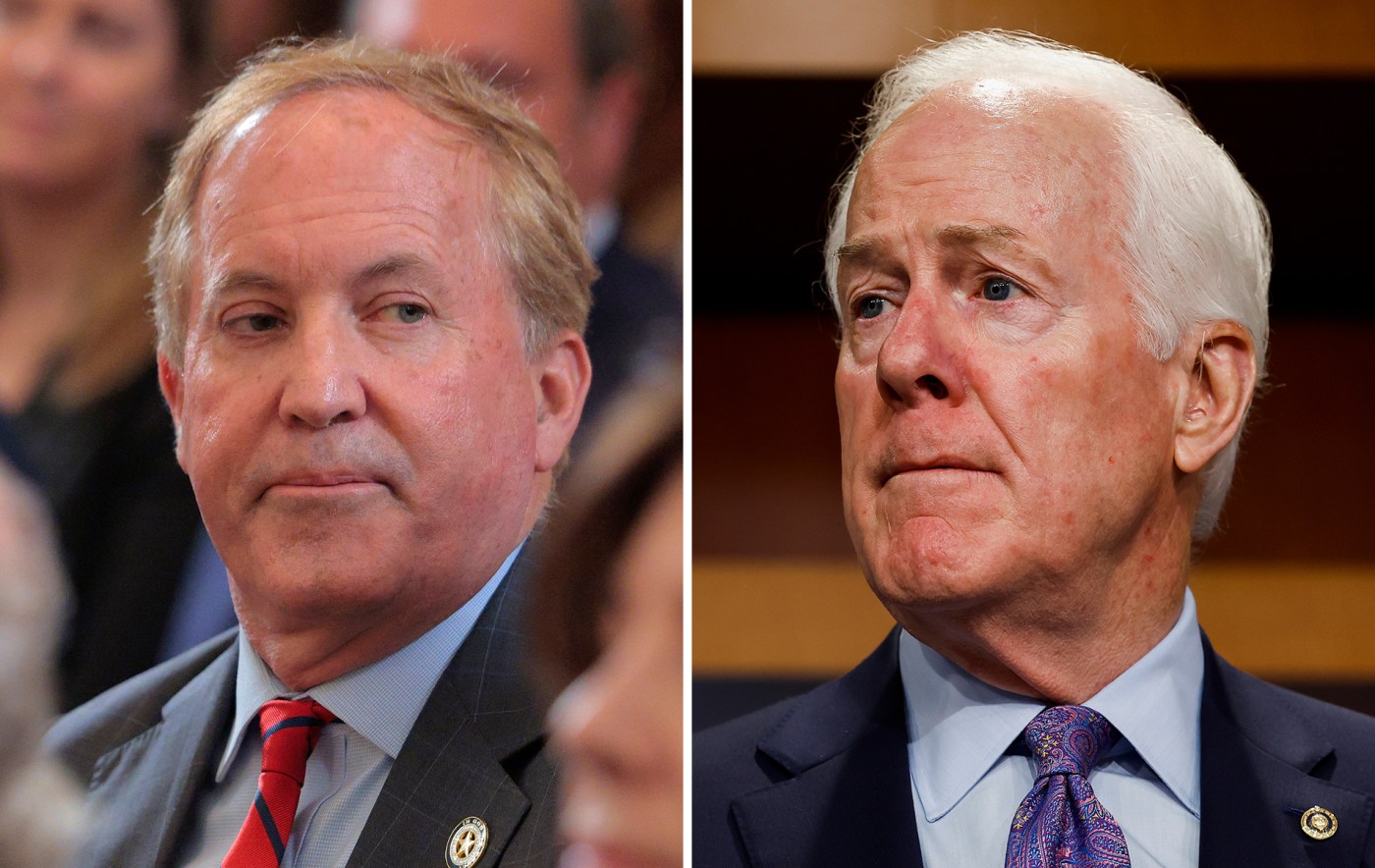

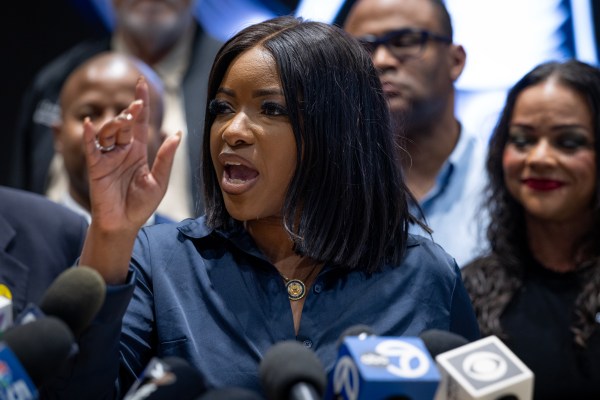
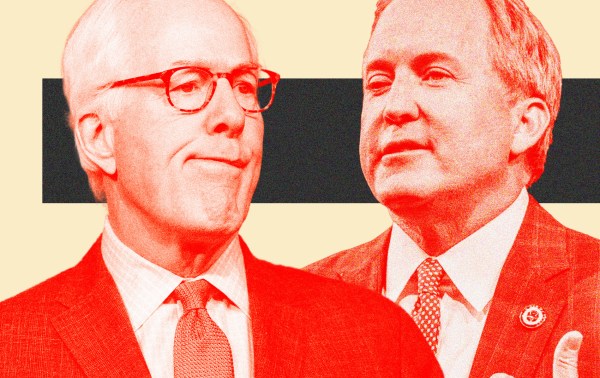
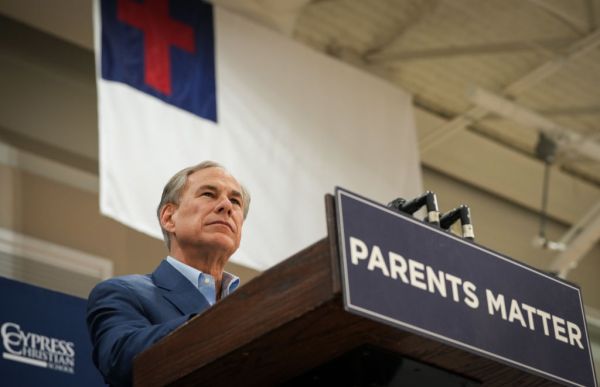
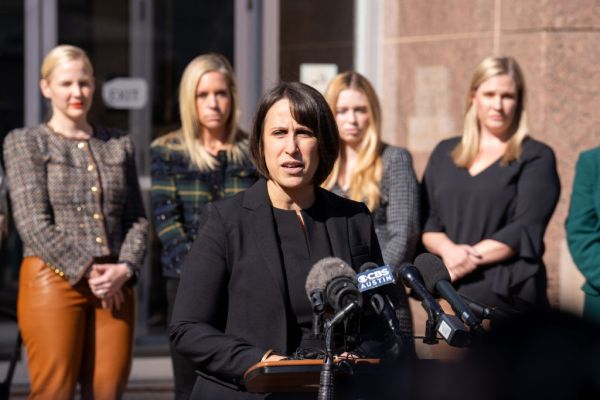
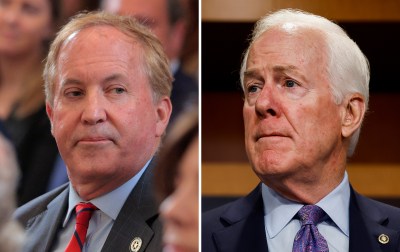
Please note that we at The Dispatch hold ourselves, our work, and our commenters to a higher standard than other places on the internet. We welcome comments that foster genuine debate or discussion—including comments critical of us or our work—but responses that include ad hominem attacks on fellow Dispatch members or are intended to stoke fear and anger may be moderated.
With your membership, you only have the ability to comment on The Morning Dispatch articles. Consider upgrading to join the conversation everywhere.